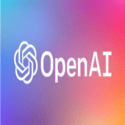
When Microsoft announced in May last year that it was investing $1bn in OpenAI to support the build of advanced language AI GPT-3, Forbes said: “At first glance, Microsoft’s $1bn investment in OpenAI does not seem to promise revenue or profit payoffs.”
Forbes contributor Mohanbir Sawhney concluded that Microsoft was playing the long game, commenting: “Going forward, the deal will allow OpenAI technology to be used to build tools and applications for Microsoft’s biggest customers, such as banks and insurance companies that are turning to AI for everything from customer service to fraud prevention.”
How right he was, as, in a move that has disappointed many in the wider tech community, OpenAI has entered an exclusive licensing agreement with Microsoft.
Microsoft’s executive VP and chief technology officer Kevin Scott announced the agreement on Tuesday in a blog post, only to be largely shot down by critics of the deal including OpenAI co-founder Elon Musk, who said in a Tweet: “This does seem like the opposite of open. OpenAI is essentially captured by Microsoft.”
Instinctively it’s hard to see how the deal accords with OpenAI’s stated mission to ensure that AI benefits “all of humanity.” While questions surround the extent of the exclusivity, and GPT-3 is still be accessible via OpenAI’s API, only Microsoft will be able to access and repurpose GPT-3’s underlying code.
MIT Technology Review said of the move: “The lab was supposed to benefit humanity. Now it’s simply benefiting one of the richest companies in the world.” There has been growing concern over the way AI concentrates power and it was hoped that OpenAI would level the playing field.”
However, in terms of the legal industry, which eats, drinks and sleeps Microsoft, there can be no doubt that this is exciting news, with the caveat that it is likely to widen and accelerate the gap between the capabilities of those that embrace Azure, and those that don’t.
Scott said in his announcement that the deal will “allow us to leverage [OpenAI’s] technical innovations to develop and deliver advanced AI solutions for our customers, as well as create new solutions that harness the amazing power of advanced natural language generation.”
He says the deal is “an incredible opportunity to expand our Azure-powered AI platform in a way that democratizes AI technology, enables new products, services and experiences, and increases the positive impact of AI at Scale.”
GPT-3 is the largest and most advanced language model in the world, clocking in at 175 billion parameters, and is trained on Azure’s AI supercomputer.
Scott said: “The scope of commercial and creative potential that can be unlocked through the GPT-3 model is profound, with genuinely novel capabilities – most of which we haven’t even imagined yet. Directly aiding human creativity and ingenuity in areas like writing and composition, describing and summarizing large blocks of long-form data (including code), converting natural language to another language – the possibilities are limited only by the ideas and scenarios that we bring to the table.” Your list of reasons to embrace Azure just got longer.








